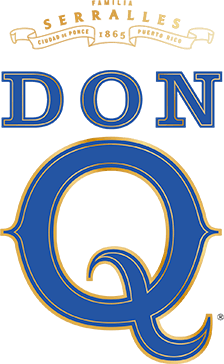
With an enthusiasm rivaled only by our passion for quality, we’ve invested significant time, knowledge, and resources in making our distillery a leader in clean, green production practices in the spirits industry.
Not only do we reap the benefits of real energy return and useful post-production materials, but we also get to do what’s best for the people and wildlife of our lovely island, Puerto Rico.
We approach environmental responsibility as the challenge of finding ecologically conscious solutions within the context of an economically viable enterprise. Our waste reclamation program not only allows us to maximize our production capacity, but also provides valuable energy return and cost reductions in the form of biogas, electricity, service water, and industrial products that we can sell to other businesses. All this while doing what’s best for the vibrant ecosphere of Puerto Rico and the Caribbean Sea.
Don Q is a pioneer among spirits producers when it comes to clean, environmentally conscious business practices. We have invested millions of dollars and significant time and brainpower in the creation and implementation of our distillery’s waste treatment system. Connecting a series of self-contained processes into an innovative cycle of waste treatment and energy harvest proved to be a worthwhile challenge.
Water
Our source of water is surface water that flows from the volcanic mountains just north of the distillery. We pre-treat this fresh water and use it for the dilution of the molasses prior to fermentation.
Molasses
Molasses, the raw material required to produce our rum, is the byproduct of granulated cane sugar production. The heat applied to cane juice releases some of the sugars as crystals while caramelizing the remaining sugars in the molasses. This process also gives molasses its golden-brown color.
Fermentation
While diluted molasses ferments, it releases CO2. This useful gas can be recaptured and utilized in a number of industrial applications.
Distillation
Distillation is an energy-intensive process in which steam is forced through columns in order to separate the alcohol from the fermented molasses "beer". Once alcohol is removed, what remains is a large volume of wastewater. The wastewater is laden with organic material—basically everything from the molasses "beer" except the alcohol. At Destilería Serralles we are proud to say that since 2005 none of our wastewater ends up in our ocean or rivers.

Wastewater
Anaerobic
Digestion
x
Anaerobic Digestion
The first part of our wastewater treatment process is anaerobic digestion, a biological process that occurs in closed tanks whereby the anaerobic bacteria (bacteria that do not require oxygen for growth) consume the organic content of the wastewater and reduce it by 65%. At the same time, the anaerobic bacteria produce biogas that is rich in BTUs and can be used as fuel in a boiler. The biogas that is produced can offset up to 50% of the fuel used annually in our boiler. This translates into a potential reduction of over 1 million gallons of fuel oil a year used in our boiler to make the steam necessary for distillation. This final process is currently in its testing phase.
Biogas
x
Biogas
The Biogas from our process powers the boilers that make the steam necessary for distillation. Using Biogas, we manage to offset 50 – 70% of our annual oil usage. When one factors in the energy required for crude oil extraction and delivery, we’ve eliminated about 2 million gallons of crude oil consumption per year.
Solid
Clarifiers
x
Solid Clarifiers
Most of the remaining organic and inorganic solids are removed and separated from the wastewater.
Used Shipping Palettes
Wood Chips
x
Wood Chips
Instead of going to the landfill, used shipping pallets can be ground down into wood chips.
Barrels
x
Barrels
Our barrels lead a good life. When they reach the end of their useful years, we don’t just throw them out. Instead, we sell them locally to artisans who turn them into furniture, home décor, planters, and even point-of-purchase displays.
Service
Electricity
x
Service Electricity
Before the steam from our boilers reaches the distillation columns, we pass it through a turbo-generator that creates a significant amount of electricity. We put this power to use in the distillery, which reduces the amount we need to purchase.
Solids
Compost
x
Compost
The bio-solids recuperated through the process can be dewatered and the resulting mud can be mixed with wood chips to create industrial compost for use as fertilizer or soil additive.
Liquids
Aerobic
Digesters
x
Aerobic Digesters
In this process, a large volume of wastewater is circulated and aerated in an open system, bombarding the remaining organics with oxygen. This allows the materials to both oxidize and be digested by oxygen-dependent bacteria. The aerobic process lowers the wastewater’s organic content even further converting it into irrigation grade water.
Fertilizer
Mulch
x
Fetilizer Mulch
We use our composted organic solids to produce rich, soil-invigorating mulch that’s used by landscapers and gardeners. We add natural colors for aesthetic purposes and market the product all over Puerto Rico.
Micro
x
Microfiltration
Currently in the planning phase, once operational this system would allow us to use reverse osmosis membrane filtration to extract virtually all remaining organics from the water. This water could then be used as service water or even drinking water.
Irrigation Grade Water
x
Irrigation Grade Water
The water that emerges after the reclamation process is fit for irrigation and industrial usage.

Without the most up-to-date version of your browser, you’ll still be able to view DonQ.com, but you may have problems using our newer features.
Check what browser version you're currently using at WhatBrowser.org. For instructions on how to upgrade, visit your browser's help resources: